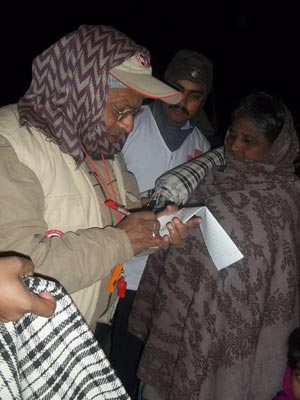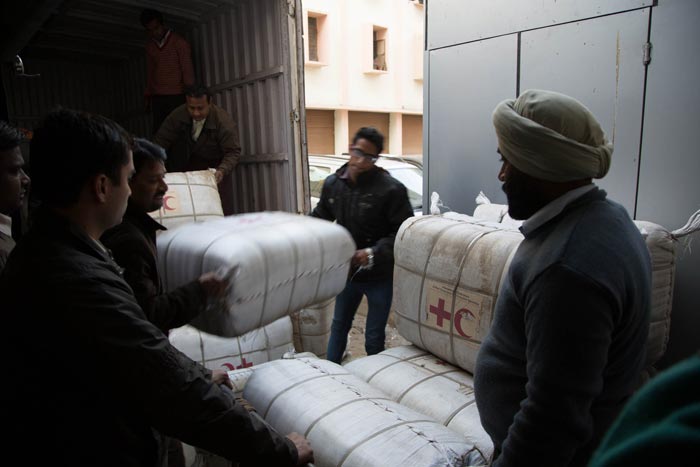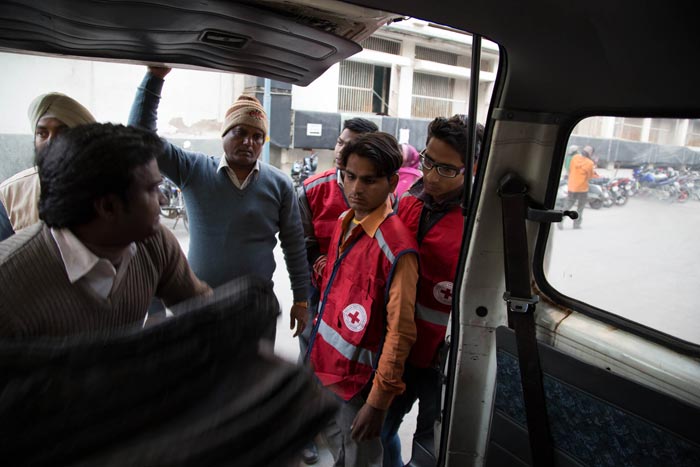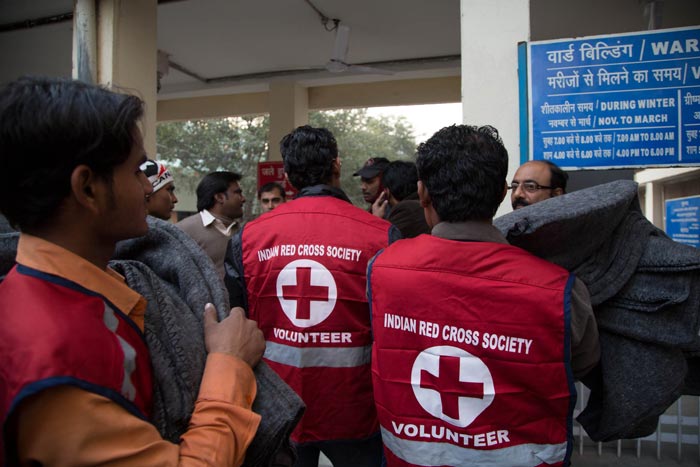Exceptionally cold conditions have swept across northern India over the last three weeks, taking the lives of hundreds of people, and causing suffering to thousands more. The cold wave is one of the most severe to hit India in decades, with Uttar Pradesh, Punjab and Haryana among those worst affected. Night temperatures regularly fell below 3 degrees Celsius in the capital, 4-5 degrees lower than the normal seasonal average. During the second week of the cold wave, Delhi recorded temperatures of 1.9 degrees, the lowest seen in 44 years. Other states including Himachal Pradesh, Jammu and Kashmir, and Rajasthan also faced extreme temperatures.
Uttar Pradesh, the worst hit state, saw as many as 250 deaths due to this severe cold, mostly among the poor and the homeless, who often have no other option than to sleep in the open. Recognizing that it is those who are already in the greatest need who are worst affected by such conditions, Indian Red Cross Society’s disaster response mechanism swiftly swung into action at national headquarters, immediately releasing 10,000 blankets from its prepositioned emergency stocks to state branches of Bihar, Jammu and Kashmir, Tripura, Uttarakhand, Uttar Pradesh and West Bengal. State branches also used local resources to distribute thousands more blankets to those in greatest need. In Bihar alone, 16,000 such blankets were distributed.
“It is those who are already vulnerable that are being worst affected by this cold spell; the old, the homeless, the sick. This is where the greatest need is, and this is where we have focused our efforts,” said Dr. S.P. Agarwal, Secretary General of the Indian Red Cross Society.
In the national capital, volunteers of the Red Cross were joined by the St. John’s Ambulance Brigade India, and distributed a further 1,000 blankets to families accompanying poor patients at two hospitals in Delhi; Ram Manohar Lohia and Kalawati hospitals. Many patients at these hospitals travel from across India to receive medical treatment. Those accompanying patients from poorer backgrounds who have no friends or relations in Delhi often to stay out in the open at night time, putting them at particular risk during this cold spell. The Red Cross blanket distribution in Delhi focused on these vulnerable family members.
Meena, who is accompanying her husband while he is being treated at Ram Manohar Lohia hospital expressed her gratitude to the Red Cross; “This woollen blanket will make a huge difference to her children, who spend the night with me in a shelter – I don’t want them to get sick from the cold.”
Although temperatures have begun to rise in the national capital, the potential for further cold spells remain. IRCS national headquarters, together with its branches throughout the affected region will continue to monitor the situation and take further action if needed.
“Despite the upward trend in the temperature in recent days, our disaster response system is ready should temperatures fall again before the end of the winter season,” said Rina Tripathi, IRCS disaster management advisor.
 |
| In Bihar, over 16,000 blankets were distributed to those in greatest need. Photo: IRCS Bihar state branch |
| |
 |
| NHQ staff preparing 10,000 blankets for distribution to state branches in the affected area |
| |
 |
| Together with St. John’s Ambulance India, IRCS volunteers distributed 1,000 blankets to families at two hospitals in Delhi. |
| |
 |
| Indian Red Cross Society volunteers bringing blankets for families of needy patients at RML hospital in Delhi |